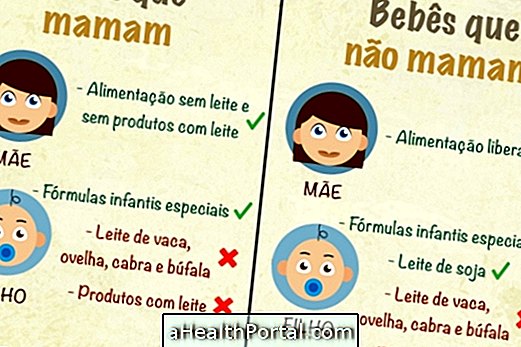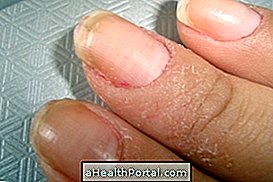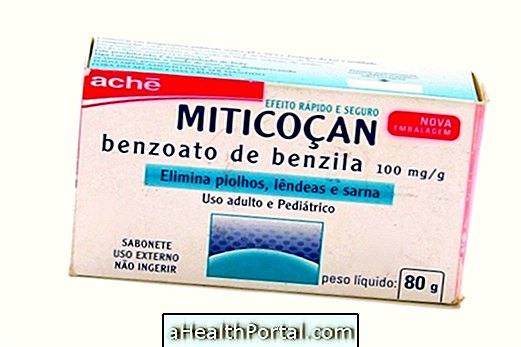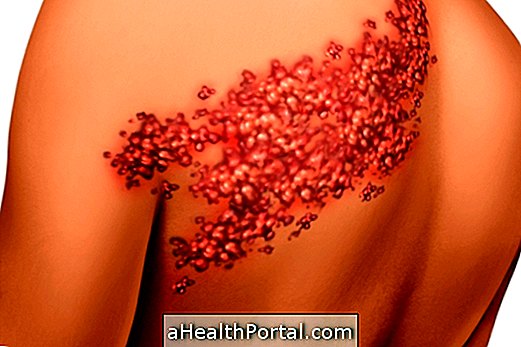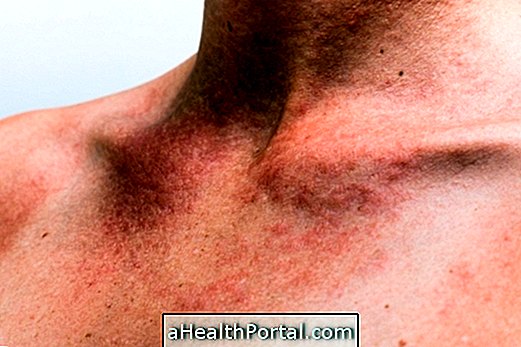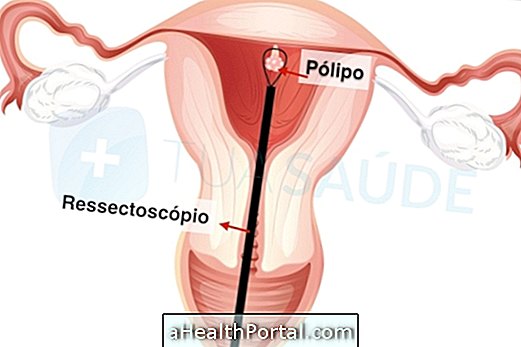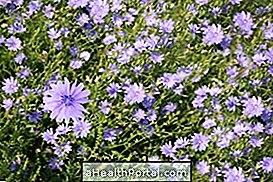The causes of allergic rhinitis may vary depending on where the person lives. Usually, certain allergens are responsible for increasing irritation of the nasal mucosa, among which we can highlight:
- Mites of domestic dust : in Brazil, mites are the main cause of Allergic Rhinitis because the hot and humid climate favors their multiplication, especially in the rooms. Mites feed on all types of organic matter, such as paper, wool, animal hair, fungus and desquamated skin. The cleaning of the room should therefore be carried out in a more efficient and detailed manner by means of more powerful dehumidifiers, sterilizers and vacuum cleaners;
- Plant pollen : people usually complain more in the early spring, worsening in the morning and on very windy days. Some say that symptoms improve when it rains;
- Fungi : is also known as "mold", exists in the air and develops more in the autumn. Those allergic to fungi, report more complaints at night, in humid environments, feeling better in dry environments;
- Hair and feathers of domestic animals, especially cat and dog, so anyone who has an allergy should not have these animals in the house;
- Environmental pollutants such as perfumes, disinfectants and pool chlorine, cigarette smoke and air-conditioning when your filter does not properly clean.
In addition, certain foods can cause or worsen allergies in general, the most common are eggs, chocolates, fish, wheat, gluten, artificial colorings, cow's milk, peanuts, among others. Check out a more complete list of: Foods that cause or worsen allergy.

Treatments for Allergic Rhinitis
Treatment for allergic rhinitis should include aspects related to the cleanliness of the place where the person lives or spends most of his time, but may also be indicated the use of medicines and taking anti-allergic vaccines, which may even cure some allergies.
Initially one should always prevent the occurrence of seizures avoiding contact with the agents that cause the allergic symptoms. If the person still does not know what the allergens are, from the age of 10 can already perform allergy tests on the skin to identify them.
It is very common for people to get accustomed to the symptoms and only seek a doctor when more serious problems occur. However, it is important to encourage treatment as soon as possible, as recent studies have shown that even moderate allergic rhinitis can impair attention and psychomotor activity.
Remedies for Rhinitis
Rhinitis remedies should be prescribed by the physician, where prevention and removal of allergens are not effective. Treatment will depend on the type and severity of symptoms, age and the existence of associated diseases. Usually the following medicines are used:
- Oral antihistamines - block the effects of histamine that cause allergic rhinitis. They usually improve symptoms like sneezing, itching and runny nose, but they are not as effective against nasal congestion. They are usually taken as tablets and may cause some drowsiness, making it difficult to learn and concentrate on children, and medical advice is essential. The most common are: Loratadine, desloratadine, cetirizine, levocetirizine, diphenhydramine, clemastine and fexofenadine. Among these, new formulas containing loratadine and cetirizine cause little or no drowsiness.
- Nasal Decongestants : Helps reduce nasal congestion symptoms by reducing secretions, but should not be used for more than three consecutive days as they may cause dependence. The most commonly used substances are pseudoephedrine, phenylephrine and oxymetazoline.
- Nasal corticosteroids are usually the most effective treatment for Allergic Rhinitis and work very well when used in their prevention, ie they can be used outside of seizures. The options are: fluticasone, mometasone, budesonide, flunisolide, triamcinolone and beclomethasone.
- Allergy Vaccines : are recommended if the cause of the allergy can not be avoided and the symptoms are difficult to control. It consists of taking regular injections of the allergen, administered in increasing doses, helping the body to adapt to the antigen. Currently there are vaccines against allergy to pollen, mites and animal hair, for example.
Treatment is usually done for a lifetime.
Natural Treatment
Natural treatment for rhinitis can be done by taking care of hygiene of the nostrils several times a day with saline or saline solution to remove mucus from the nose. One can also take pineapple juice with apple and honey twice a day, make steam bath with eucalyptus tea and salt every night before bed and make inhalations with propolis spray. To decrease the symptoms of rhinitis try this juice: Natural remedy for rhinitis.


